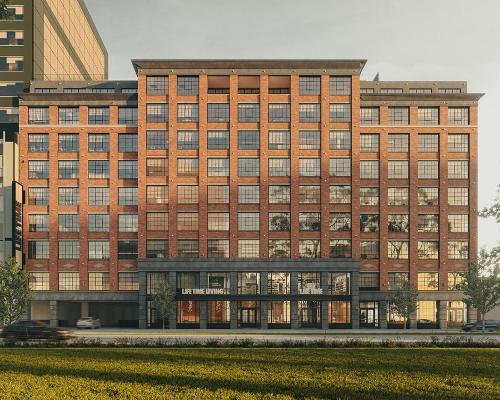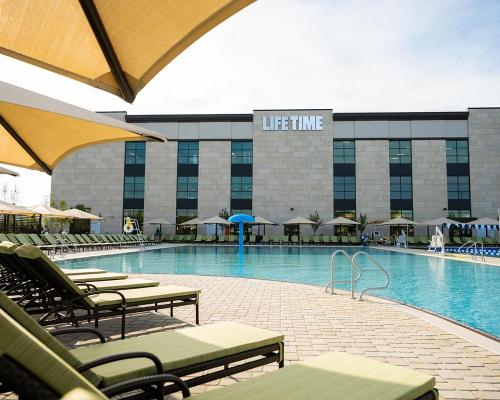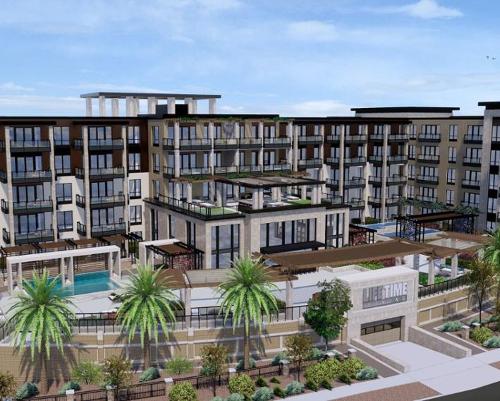see all jobs
Life Time breaks the US$500m barrier in Q3 – trials weight loss drugs
US-based health club, lifestyle and wellness operator, Life Time, has published its Q3 2023 results, revealing ambitions to widen its reach.
Bahram Akradi, Life Time founder and CEO, said: "We generated record levels of revenue in Q3 – our trailing 12-month adjusted EBITDA surpassed US$500 million for the first time in our history."
The company's rollouts are accelerating – it opened 10 new sites through the first nine months of 2023, six of which were in the third quarter. Two further sites are expected to open in the fourth quarter of 2023.
As of 30 September 2023, Life Time operates a total of 170 locations.
Akradi revealed the business has an ambitious diversification strategy, saying: “With 150 billion web impressions a year, we’re asking, what other products and services consumers can buy from us.
“We’re not yet taking advantage of all the different connections and programmes we have, so there’s essential work being done to systematise all of that across the business,” he said.
Akradi said that in addition to building full-service clubs, the Life Time board can also see a number of ‘asset-light’ opportunities in the market. It's introduced an assisted stretching offering called Dynamic Stretch, for example, which it says could present a US$50 million market opportunity in 2024.
It’s also trialling the introduction of weight loss drugs for members, with Akradi saying the various new offerings are worthwhile long-term investments that will strengthen the luxury brand.
The company is spending on facilities such as pickleball courts, as well as new personal training programmes to boost its premium member experience. The changes have helped drive member engagement, with average visits per member up 24 per cent since 2019.
“Higher engagement from members means higher return visits and increased spending over the lifetime of the relationship,” commented Akradi.
The programme changes have been partly designed to keep Life Time’s affluent customers satisfied with service as prices have risen and to avoid consumers moving to more value-priced health club offerings.
Life Time has been increasing prices at many of its locations, although these vary according to local markets.
Akradi says the majority of planned price changes have already been implemented, but that 20 - 25 per cent of the company’s clubs will still have the option to increase membership rates over the next year.
Life Time has recently been pushing further into the residences market with the opening of a new 52,000sq ft club with luxury living in Connecticut. It's been tackling the wider wellness market with the opening of a wellness village in Las Vegas last year. More such developments are on the cards, with Life Time being one of the first health and fitness operators globally to follow the residences trend that is so prevalent in the hospitality and spa and wellness sectors.
The company’s Q3 2023 financial results were coolly received by the market and shares fell by 15 per cent after it forecast a slight softening in Q4, although they’re still up on the year.
Life Time said it expects turnover for the fourth quarter of 2023 to be between US$555 and US$565, against a forecast of US$576.6, with full year revenue at between US$2.21 and 2.22 billion, versus the US$2.24 million previously expected.
Reporting its figures for the three months to 30 September, the full-service operator saw revenue increase by 17.9 per cent to the record high of US$585.2 million, up from US$496.4 million in the third quarter of 2022.
Adjusted EBITDA increased 101.4 per cent to US$143.0 million (from US$71.0 million in 2022).
On the operating front, Life Time saw its total club memberships increase by 55,602 (or 7.6 per cent) during Q3, when compared to 2022.
Net income fell US$16.8m from US$24.7 million the year before to US$7.9 million in Q3 2023, mainly due to gains from sale and leaseback deals in the previous year of US$48.6 million, which inflated the comparison figures. There was also a loss from a sale-and leaseback transactions in Q3 of US$12.7 million.
These impacts were partly offset by improved business performance in Q3, but still led to diluted earnings per share decreasing to US$0.04 from $0.12 Q3 in 2022.
Operating costs, including new and upgraded locations, rose 8.2 per cent year-on-year during Q3 to US$319.4 million.
"As we look to next year, we expect to be free-cashflow-positive after all capital investment – including new club growth – by the middle of 2024, two years earlier than originally anticipated,” said Akradi.
"With expectations for continued Adjusted EBITDA growth and significant asset-light opportunities, we expect to fund our targeted growth in 2024 and beyond with internally generated cashflow. We are well positioned for continued success," he concluded.
More News
- News by sector (all)
- All news
- Fitness
- Personal trainer
- Sport
- Spa
- Swimming
- Hospitality
- Entertainment & Gaming
- Commercial Leisure
- Property
- Architecture
- Design
- Tourism
- Travel
- Attractions
- Theme & Water Parks
- Arts & Culture
- Heritage & Museums
- Parks & Countryside
- Sales & Marketing
- Public Sector
- Training
- People
- Executive
- Apprenticeships
- Suppliers



















































